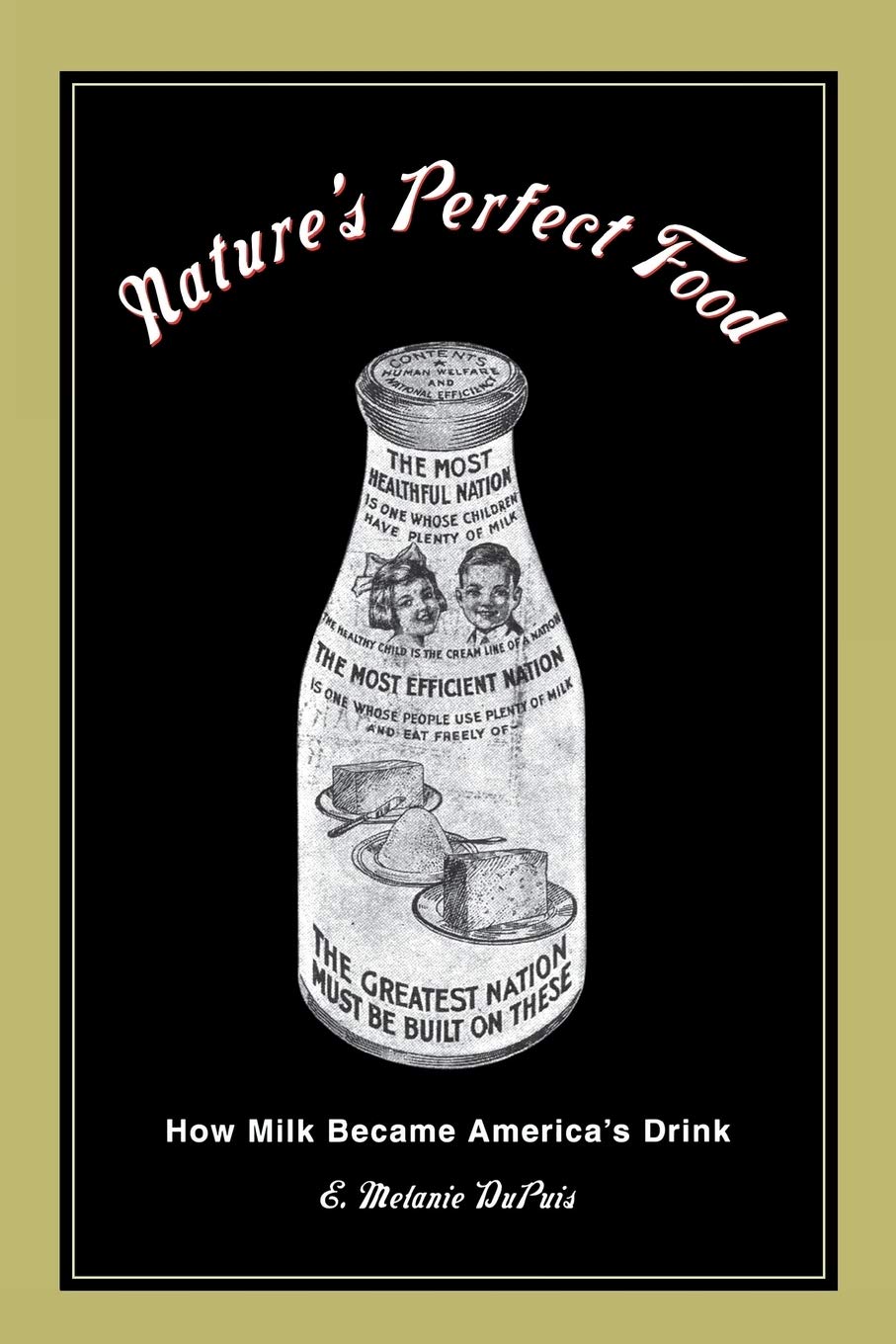



Full description not available
C**N
Service and quality
Very fast service, book in very good condition
A**I
but the latter half of the book really gets into like geospatial analysis of what DuPuis calls the "milk belt" ...
This book is a solid piece of intellectual history about "perfection" and how discourses of perfection around milk reveal the way that (white) America's connections to milk have more to do with perfection than science itself supplies. I will say that this book is also subtly about whiteness, in that it is about whiteness even though DuPuis barely mentions it. The beginning half of the book, about consumption, is interesting, but the latter half of the book really gets into like geospatial analysis of what DuPuis calls the "milk belt" and it got much more difficult for me to follow (and ultimately less interesting and, I think, less relevant to DuPuis's overall arguments about perfection narratives.) Again, this book was okay, sort of interesting, but not the most convincing or interesting book to me.
R**L
A historical and rational approach on the history of milk ...
A historical and rational approach on the history of milk and how it became so widespread and popular in the United States! Very insightful, something you never would have realized before reading.
W**L
Fine book.
Excellent book by a leading scholar.
J**N
Scholarly critique documenting an American economical juggernaut
Well researched, engaging, sometimes repetitious, name dropped integral philosophers influencing her rounded Sociology of Agriculture studies (Plato, St. Thomas Aquinas, Karl Marx, John Locke, Adam Smith)), combined several fields (Economics, Sociology, Political Science, Philosophy, Religion, Feminist History) into easily explaining the foundation behind America's dairy industry. "Nature's Perfect Food" falls under two classifications: the first half chronicles consumption, countered promotional advertising between "progress story" vs. "downfall story", detailing areas from responses to breast feeding, farmers' interests behind potentially stymied policies (re: pasteurization), regional effects from consumerism over milk, differentiating between cow's and swill milk and how these control for market power, anti milk protests over the industry's alleged abuse over cows as well as acrimonious relations amongst dairy industry, non dairy products (re: Nestle, Carnation, Bromden businesses) and consumers, farmers' changing roles from direct work into managerial capacities. Her final section documents production: The European Union's prioritizing responses in line with economic activity (re: diverse production methods above homogenous operations), historical trends on price controls, the role of trucking transportation generating neighborhood farmer rivalries due to newly constructed geographic boundaries, milk strikes emanating from our early 20th Century Northeastern dairy market, etc. Informative, sobering read about an often unreported industry today!
A**R
Your typical liberal college professor who feels the need to ...
Your typical liberal college professor who feels the need to show everyone that she to is culturally diverse. What was the point of writing this book? Especially now when racial tensions are at an all time high. I'm beginning to think that she wrote this knowing right now might be the only time this topic is even close to being relevant. Scares me to think she influences our younger generations.
Trustpilot
3 weeks ago
2 months ago